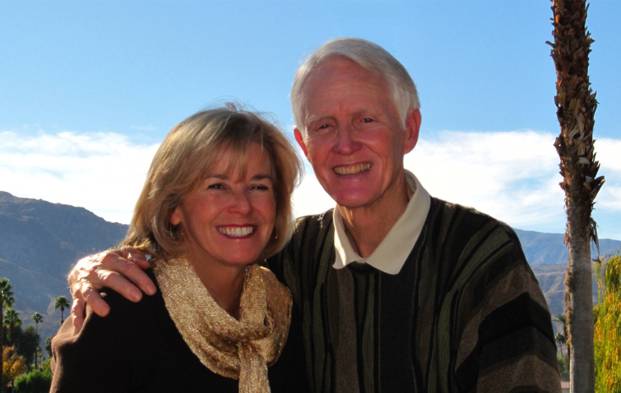
Ch-1: Our Search for Happiness and Self-Actualization
Part 5: Your Happiness Quotient
Tom G.
Stevens PhD
Psychologist/Professor Emeritus,
California State University, Long Beach
Send Feedback/Questions to:
Tom.Stevens@csulb.edu
You Can Choose To Be Happy:
Site dedicated to enhancing human happiness, self-development, and success
Go to: Choose To Be Happy Checklist
SITE MAP: All free
Self-help resources includes online book, You Can
Choose To Be Happy, and SHAQ

|
|||
| search engine by freefind |
Go to site Homepage
Go to book contents Go to chapter contents
Your Happiness Quotient (HQ) and
Redefining "success," "personal
power," and "Happiness IQ"
Loving Yourself Means Takinig Good Care of Yourself
A NEW UNDERSTANDING FOR SOME COMMON TERMS
If we make happiness for self and others our ultimate concern, it will cause us to view life through a new set of glasses. Many of us make important goals of "success," "personal power," "intelligence," or "loving ourselves." Let's look at these common terms through our new glasses.
What is success? The dictionary defines success as "the achievement of something desired, attempted, or intended"--meeting one's goal(s). Many people in our society measure success by how much money, status, power, prestige, fame, or accomplishments a person has achieved. The media constantly bombards us with messages that say these factors are the measures of success. However, the word "success" simply means meeting one's goals--whatever they may be. Everyone can have their own measure of success. What is yours?
I am successful to the degree that I am happy and contribute to other people's happiness. To measure your success, decide what your most important goal is. Ask yourself, "What is my ultimate concern?" Which is more important to you--money, status, power, prestige, fame, or happiness?
For me, happiness is most important. These other goals are important
only to the degree that they contribute to my own and others' happiness.
Therefore, I will measure how successful I am in my life by two simple
measures, "How happy am I?" and "How much have I contributed to the happiness
of others?"
I would not choose success in career, friends, money, status,
or any other worldly goal.
For what good are these to me without happiness?
If, at the end of my life, I can look back and say,
"I have contributed to the happiness of others and been happy myself,"
I will judge myself to have attained the most important kind of success.
What is personal power? Let's try to understand personal power better by first looking at its opposite. A frequent complaint of clients entering therapy is that they feel. People often describe themselves as having low self-esteem or say that their life feels out of control. What these clients mean is that they can't control their own emotions and happiness!
I knew a multimillionaire who had a good family and friends. He had been very successful in his career and had lots of financial and social power. Yet he felt depressed for a long time, and described himself as feeling powerless.
There is a difference between my definition of personal power and society's
definition of power. Society often measures power by criteria such as accomplishment,
money, status, influence, or fame. By societies definition of power, Adolf
Hitler was one of the most powerful men in history. He did have a great
impact on history. However, it was negative power; he was a total failure
at contributing to the happiness of himself and others.
Return to beginning
What is our Happiness Quotient (HQ)? In his book, Your Erroneous Zones, Dr. Wayne Dyer uses a concept he calls your "Happiness IQ.” One well-accepted definition of intelligence is an ability to learn from experience and solve problems effectively.
Dr. Dyer points out that abilities to solve math problems or other difficult intellectual problems can be very useful. However, they are not nearly as important as the ability to solve the basic life problems necessary for finding happiness. Dr. Dyer calls this concept our "Happiness IQ" and asserts that it is the most important type of intelligence.
Salovey and Mayer’s (1990) concept of Emotional Intelligence (EQ) also stresses the importance of learned skills for getting control of emotions. Goleman’s popular book about EQ helped garner a great deal of research support. Martin Seligman, as president of the American Psychological Association (APA), renewed a Positive Psychology movement in our country. Seligman stressed learned optimism and other learned cognitive factors for helping individuals and society become happier and more productive (Seligman and Csikzentmihalyi, 2000). His efforts triggered a new round of positive psychological research.
Before writing the first edition of this book, my own study (Stevens, 1987) of more than 4,000 college students found that many key cognitive, self-management, and interpersonal skills correlated significantly with their happiness and other success factors. Now I use the term Happiness Quotient (HQ) to mathematically summarize a host of personal factors identified by our research as strongly predicative of happiness, other emotional outcomes, and some life success measures. A goal of this book is to help you increase your HQ.
When my wife Sherry read this passage about our Happiness IQ, she reminded me of a mutual friend's experience. For years Allen had led a life in which he seemed to give happiness for self and others top priority. He took time to lead a fulfilling life--balanced across many life areas. He took the time needed to "smell the roses" in each activity he participated in. Allen was successful in his career, but had not emphasized his career as much as the most successful in his field had. He was usually in a good mood and was giving toward other people. He would sometimes give even when he could not afford to. Yet he loved people and loved to give--he gave out of a desire to give and the joy it gave him. This lifestyle worked well for years.
Then Allen became involved with someone who was very ambitious for financial success. He began to feel a great deal of external and internal pressure to be more successful, make more money, and build a small empire of possessions. His mood changed dramatically during this period. He became dissatisfied with his work, his relationship, and his life. He did make a lot more money and was even more successful in his business in the short run. Yet, he got tired of the rat race and constantly fantasized about escaping.
Finally, Allen realized that he had let the means to happiness become the end. Despite his love for her, he ended the relationship because it had become unhealthy and unhappy. He put happiness back on track ahead of success and money, and once again was a happy (but wiser) man.
But whomever you read or see for therapy, try to find out if they are happy persons themselves. Also, do they know about the specific areas that you most need help in? We can learn something from anyone, but we can learn most from those who know most about what we want to learn.
LOVING YOURSELF MEANS TAKING GOOD CARE OF YOURSELF
Think of a mother who loves her newborn baby. She tries to take good care of her baby by meeting all of its biological and psychological needs. This is taking good care of someone. However, many people never learn how to take good care of themselves in each life area. Loving yourself--translated into actions--means caring for all your needs and values the way a mother cares for her newborn baby.
If all our biological and psychological values are being met at a level that surpasses some internal criterion, then we will feel perfectly happy. (In Chapter 9, you can learn the O-PATSM self-management system for increasing the chances your values will be satisfied.)
PRACTICE: 1--How happy
are you in each life area? (1) Make a
list of life areas (Examples: Career, College, Self, Family, Friends,
Relationship, Recreation, Health, Financial, etc.) (2) For each area, rate your
overall happiness from 0 to 100.
2--Make a happiness
graph. (1) Take a sheet of paper and
draw a graph. Mark the years of your life on the horizontal axis and your
degree of happiness (0-100) on the vertical axis. (2) Mark key life events on
the time line. (3) Make a graph of (overall) how happy you were for each year
of your life. (4) Optional. Repeat this exercise by life area--career/school,
family, friends, self, etc.
Dr Tom G Stevens' BOOK: You Can Choose To Be Happy:
"Rise Above" Anxiety, Anger, and Depression
(with Research Results)
Go to Free BOOK DOWNLOAD
pdf
Go to BOOK CONTENTS
Go to RESEARCH SUMMARY CHAPTER
SELF-HELP INFORMATION + SITE MAP:
FREE SELF-HELP MATERIALS on this web site (click here to see list)
Free SHAQ QUESTIONNAIRE: Go to:
Success and Happiness Attributes Questionnaire (SHAQ)
to assess yourself on many factors--including your
HQ-Happiness Quotient
ORDERING the BOOK:
How to ORDER You Can Choose To Be Happy
Web site created and maintained by: Tom G. Stevens PhD,
Psychologist/Professor Emeritus, California State University, Long
Beach Counseling and Psychological Services
URL of this web site:
http://home.csulb.edu/~tstevens/index.html
HOME PAGE: Return to Dr Tom Stevens' Home Page Copyright 2025; Tom G. Stevens PhD